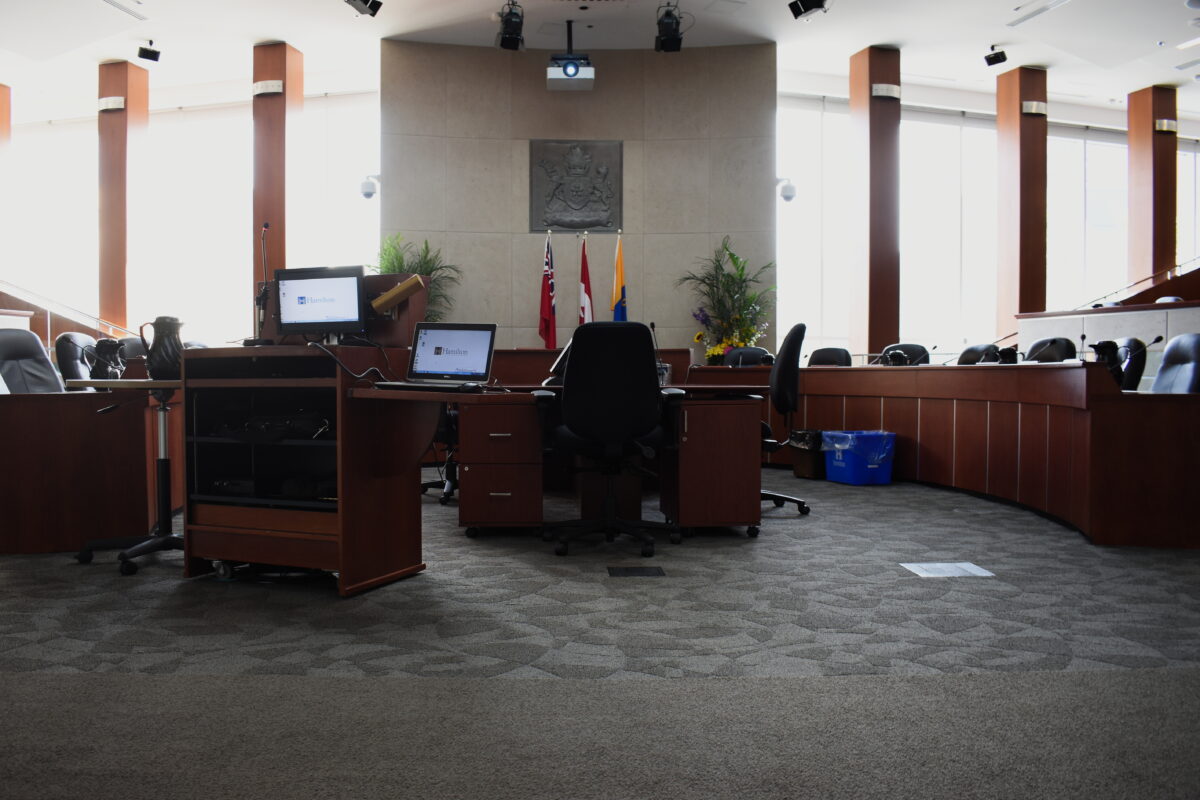Ontario’s Municipal Act was hurriedly amended in 2020 during the early days of the COVID pandemic emergency to allow municipal councils to meet using video conferencing.
The hurried amendments have created loopholes that diminish local transparency and honest governance.
This week, Ontario’s Information and Privacy Commissioner released a ruling stating that video conference group chats during council meetings, chats that include councillors debating public business, are not subject to Ontario’s Municipal Freedom of Information and Privacy Act.
“In the circumstances of this appeal, although I also find that records were created during meetings which relate broadly to the city’s mandate, the private communications at issue in this appeal relate more specifically to the councillors expressing their personal views to other councillors about an issue or attempting to persuade each other about a particular position mixed with casual, personal communications,” writes IPC Adjudicator Steven Faughnan in paragraph 86 of the ruling.
“I accept the city’s submission that the records at issue in this appeal relate to the councillors in their roles as constituent representatives and are in the nature of ‘political’ rather than ‘city’ records. It is possible that the council members individually made determinations about how to vote based on a number of factors (i.e.: constituency input, lobbying from various interest groups, personal research, etc.), but this does not mean that the city itself relied on these email communications, and I find that it did not do so. The city does not assert control over what records the councillors create, how they maintain these records, or what they choose to do with these communications afterwards, including the right to destroy them if they wish.”
It is an concerning interpretation of record custody.
The video conference platform, Microsoft Teams, is controlled by the municipality. The video meeting is created by the municipality, the group chat only exists because the municipality creates the meeting, and the chat record remains with the municipality.
Nonetheless, Adjudicator Faughnan decided the record was not in the custody of the municipality.
Private Debate During Public Meetings Are Now Secret: That’s a Problem That Needs to Be Fixed
The Act’s open meeting provisions were written over 50 years ago.
The Act requires that meetings be open to the public, with some exceptions outlined in Section 239, and that all votes must occur in open public sessions.
The Act prohibits private conversations among elected officials when enough members are present to make quorum for any committee that decides upon the matter under discussion.
Fifty years ago, the only means for councillors to debate during a meeting was in the open.
Today, thanks to the needed but hasty emergency amendments in 2020, councils can hide from the public in ways that are contrary to the legislative intent of the Act.
Take, for example, Hamilton City Council’s position during the pandemic that because the Municipal Act does not explicitly state the public has a right to know which councillors are present (or not) during a video conference meeting, council attendance is personal and private information.
Hamilton took a similar position against sharing how individual councillors voted during meetings.
The Municipal Act needs to be amended to explicitly state electronic meetings must be as transparent as the in-person meetings they replace – that includes banning private debate in group chats.
Production Details v. 1.0.0 Published: September 4, 2024 Last updated: September 4, 2024 Author: Joey Coleman Update Record v. 1.0.0 original version

